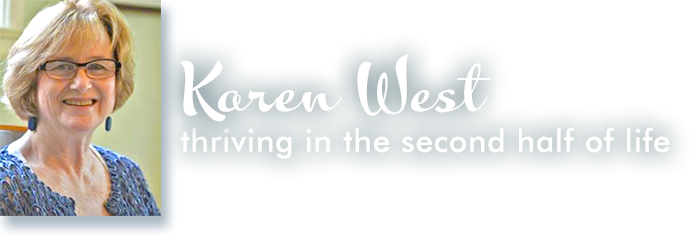When I was a career counselor, my clients were “dislocated workers.” That means they were laid off from their jobs through no fault of their own. As a career counselor, I was responsible for teaching them how to do an effective job search. Many of the dislocated workers would come in hoping that I would help them make a good resume and find a job to apply for as quickly as possible. But I didn’t see that as the most crucial part of my job. For some of them, yes, that was all they needed, but I felt that the vast majority of them needed something else. Most of my clients were in their 40’s and 50’s, and they had been doing the same kind of job for a long time. I encouraged them to take some time and use this opportunity to make a “transition” instead of just a “change.”
These are the words that William Bridges uses in his important book Transitions that has been republished many times since it was first published in 1976. The premise of the book is that “a change is situational, but a transition is psychological.”
 I was a high school English teacher for 34 years. When I was growing up, all I wanted to be was a teacher, and I loved my job for a long time. However, there came a time when teaching high school was no longer a good fit. Unfortunately, though, I couldn’t imagine myself doing anything else, so I didn’t know where to even begin to change my identity. Therefore, I unhappily continued in the classroom until I was 56 and could retire with the rule of 90 in 2005. Finally, I was free, but I had no intention of actually “retiring.”
I was a high school English teacher for 34 years. When I was growing up, all I wanted to be was a teacher, and I loved my job for a long time. However, there came a time when teaching high school was no longer a good fit. Unfortunately, though, I couldn’t imagine myself doing anything else, so I didn’t know where to even begin to change my identity. Therefore, I unhappily continued in the classroom until I was 56 and could retire with the rule of 90 in 2005. Finally, I was free, but I had no intention of actually “retiring.”
I began a job search at 56 knowing only two things: I wanted to work for a non-profit, not a corporation, and I wanted to work with adults, not teenagers. It took me three long years to find my new job. Now I realize the reason it took so long was that I didn’t know I had to “let go” of my identity as a high school teacher before I could move on.
When I “retired” from teaching, I had no idea how long it would take me to find a new job, so I decided to substitute teach for a while. That was a big mistake. Instead of trying to visualize myself in other roles, I remained trapped in my worn out identity. It took me a year of networking and informational interviews to finally “let go.” It wasn’t until I became a career counselor and read Transitions that I learned about the importance of learning to let go.
 In his book, Bridges says there are three stages in a transition. The first stage is the “ending” or “letting go.” Too often people try to move on without really letting go first. But if they don’t “let go,” they won’t be able to make a transition; they will only make a change. To make a transition, they have to do “inner work” and become a different person, which is why Bridges says a transition is “psychological,” not just “situational.” For example, if you just move from one job to another or one partner to another and you don’t grow and change in the process, you have only made a change.
In his book, Bridges says there are three stages in a transition. The first stage is the “ending” or “letting go.” Too often people try to move on without really letting go first. But if they don’t “let go,” they won’t be able to make a transition; they will only make a change. To make a transition, they have to do “inner work” and become a different person, which is why Bridges says a transition is “psychological,” not just “situational.” For example, if you just move from one job to another or one partner to another and you don’t grow and change in the process, you have only made a change.
Then, after you have been able to “let go” (probably not completely but to a great extent), you move into the “neutral zone” or the “in-between time.” This stage is also crucial, and in some ways this second stage is even harder than the first. In this stage, you have to have the patience to do “inner work” at the same time that you’re feeling lost, because you are no longer who you were, but you don’t know who you are going to become. The temptation is to try to get out of this stage as quickly as possible, but you can’t do that if you want to make a transition. You have to accept that you could spend a long time in this uncomfortable but transformative stage.
Being in the neutral zone is hard for everyone, but it was also hard for me because of the way I saw my age. Because both my grandmother and my mother had died at 52, I thought I would die at 52. And here I was—56. I thought I was very “old.” I was sure that I had outlived my expiration date. And I had no role models of people who had made the kind of transition I was trying to make. Marc Freedman had not yet published Encore, his ground-breaking book about changing careers in later life. But, then, in 2008 the most amazing thing happened. On February 7, I was offered the exact job I had been trying to find. And on February 14, I turned 60. Once again, I was passionate about my job, and I felt younger and more vital than I had for years. Who knew that being 60 could be so exciting?
I had “let go” of my first half of life work identity, I had done lots of “inner work,” and I had moved into the third stage, the “new beginning.” And I was beyond excited that I had found a career where I was sure I would be able to help other people make equally satisfying transitions.
But as meaningful as a job transition can be, I’m even more excited about the “work” I’m doing now, helping people learn what it means to transition into the second half of life. I’m confident that making this transition will radically change the way you see yourself and the way you see the world as you age. More and more elders are discovering that if they choose to leave the first half of life behind and enter into the second half of life as they age, life will get better, not worse.
Carl Jung, who coined the term “second half,” put it so well In his essay “The Stages of Life.” He wrote, “A human being would certainly not grow to be seventy or eighty years old if this longevity had no meaning for the species … The afternoon of human life must also have a significance of its own and cannot be merely a pitiful appendage to life’s morning … Whoever carries over into the afternoon the law of the morning … must pay for it with damage to his soul.” (From Age-ing to Sage-ing, pg. 70).
You can contact me at karenw0214@gmail.com or 651–399-9571.


2 thoughts on “Making a Transition”
Karen,
Not sure I understand “law of morning” reference. I get morning but the negative aspect of carrying it over to afternoon time, is not as clear. I guess the use of word “law” is confusing. I can imagine the emotional attachment aspect.
Teresa
Thank you so much for your question, Teresa. The “morning” of your life is when you were younger and the “afternoon” is when you are older. Jung is saying that if you don’t live your life differently at 70 or 80 than you did at 40, if you refuse to leave midlife behind and embrace your elderhood, you will “damage your soul.” I think what he means when he says “the law the morning” is that certain ways of living seem to be required when we’re younger. Just a few of the things we have to do are get an education, find a job or career and start a family. In the second half, we can do and especially “be” other things. In future posts, I will share with you what the authors of books on “conscious aging” and “Sage-ing” say about how you can live your life in the second half. I hope you will keep reading.